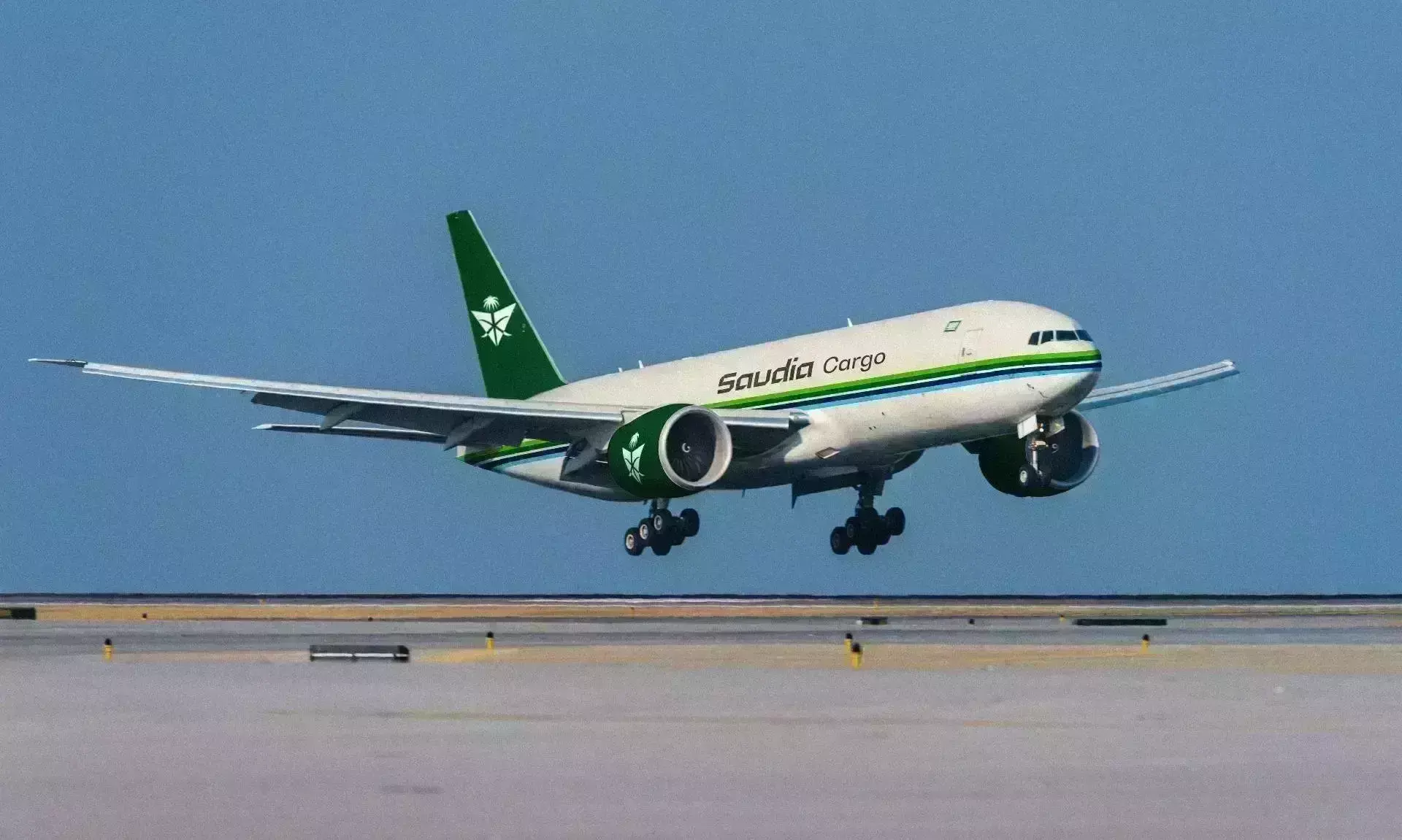
Saudia Cargo catapults Middle East to premier global logistics hub
Saudia Cargo positions Saudi Arabia as a global logistics player, shaping e-commerce's future through strategic partnerships

In a significant move towards redefining global logistics, Saudia Cargo has partnered with Cainiao and Worldwide Flight Services (WFS), paving the way for a transformative era of seamless global deliveries. Anchored by a dedicated space in the Cainiao Liege eHub, this collaboration transcends traditional partnerships, responding dynamically to the escalating demand for efficient cross-border e-commerce in the Middle East and Europe. This joint effort becomes even more crucial as Saudi Arabia boldly aims to become a top-notch global hub for logistics.
Teddy Zebitz, CEO of Saudia Cargo said “Our collaboration with Cainiao and WFS/SATS represents a natural evolution of our strong collaborations. By building on our existing commitments, we are poised to redefine the industry landscape, offering innovative and customer-centric solutions. Our collaboration ensures a seamless flow of e-commerce materials from Hong Kong to Liege. With high-frequency flights on our Hong Kong, to Liege Via Riyadh route, we have a significant capacity exclusively dedicated to Cainiao. Utilising a meticulous process involving pre-built ULDs, we facilitate an uninterrupted supply chain, supporting Cainiao in achieving their key performance indicators.’’
(From left): Marwan Niazi, VP, Commercial, Saudia Cargo, Thomas Yu, Sr. Director, Global Hub Operations and Product Development, Cainiao Group, Eric Xu, VP, Cainiao Group, Loay Mashabi, Managing Director, Saudia Cargo, John Batten, CEO, EMEAA, WFS/SATS, Teddy Zebtiz, CEO, Saudia Cargo, Mohanned Badri, VP, Operations, Saudia Cargo and Assaad Sfeir, Key Account Director, Group Commercial, WFS/SATS.
Saudia Cargo and Cainiao have had a long history of working together. The latest agreement strengthens this long-standing relationship by giving priority to specific Saudia Cargo freighter flights originating from Hong Kong for Riyadh and Liege. This strategic move has been carefully developed to meet the burgeoning logistics demands in these key regions, thereby increasing the efficiency of e-commerce deliveries.
Additionally, the agreement boosts WFS/SATS's handling capacity on flights between Liege and Riyadh by over 50,000 tonnes per year. The investment by WFS/SATS in Cainiao's Liege facility emphasises innovation and efficiency, incorporating advanced technology such as AGVs, digital dashboards, and live tracking systems. Saudia Cargo, Cainiao, and WFS/SATS CEOs pledged to revolutionise the industry by providing customer-centric solutions and improving e-commerce operations. Commencing on March 1st, 2024, the partnership seeks to revolutionise cross-border logistics by utilising cutting-edge technology and operational excellence, thereby establishing innovative benchmarks within the e-commerce logistics network.
This collaboration holds significant importance for Saudi Arabia’s Vision 2030, where logistics assumes a crucial role. Furthermore, a notable rivalry exists between Saudi Arabia and the UAE, and the outcome will ultimately determine which of the two nations emerges as the leading force in the Middle East's logistics sector. Saudi Arabia has publicly declared its ambition to surpass the UAE and Qatar, both significant players in the regional logistics sector. The Saudi government has been investing heavily in infrastructure projects. Vision 2030 also intends to use technological advancements like blockchain, robotics, automation, artificial intelligence, and more to digitise Saudi Arabia's logistics industry. This synchronisation will also be greatly aided by 5G, which will enable quicker and more effective connections.
Given the importance of seaports to the logistics industry, Saudi Arabia's master plan also seeks to increase interest in this field. One illustration is the growth of the King Abdullah Port and the Islamic Port of Jeddah to handle more maritime freight. With more seaports, there should be a rise in imports and exports and greater economic prosperity for the Kingdom of Saudi Arabia.
Earlier this year Saudi Arabia’s crown prince Mohammed bin Salman launched the master plan for logistics centres. The objective of this plan is to grow the logistics industry to bolster economic expansion and improve local, regional, and worldwide connectivity for global supply chains and international trade networks. The plan also seeks to increase employment opportunities and develop collaborations with the private sector. The Master Logistics Centres Plan describes 59 centres with a combined total area of more than 100 million square metres, distributed throughout Saudi Arabia's major strategic areas. With the aim of finishing all centres by 2030, the current work is concentrated on 21 centres. The centres will support e-commerce by enabling quick connections between logistics centres and distribution hubs across various regions, cities, and provinces. They will also enable local industries to export Saudi products efficiently.
Additionally, with the introduction of unified logistic permits, the plan streamlines the process of obtaining logistic activity licences and makes high-level tracking easier.
Saudi Arabia's advantageous geographic location at the intersection allows it to connect quickly with countries in Europe, Africa, and Asia. By establishing itself as a logistics hub, Saudi Arabia can make it easier for goods and people to move across borders. This will promote economic collaboration, and cooperation, and also aid in humanitarian and relief efforts.

